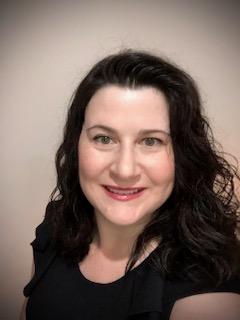“Work smarter, not harder”
I remember my father telling me this as a teen while trying to decide what my future would be like. We have heard this line before, but what does it mean?
My father was referring to his blue collar physically laborious job and he wanted more for me than working with my hands. He finished high school, got married and had kids. His mother, my grandmother, had to stop school in the 8th grade to come home and help raise the other 19 brothers and sisters in the home. I was the first in my family to go on to college and get a degree.
I earned my bachelor's degree in Physician Assistant Sciences in 1995, way before master's degrees and doctorates in the field existed. As I began my clinical career, I often thought about furthering my education, but I did not see any advantages in the clinical realm and life sometimes got in the way of commitment.
As time passed, fear of returning to school came into play. “Do I have enough time?” “Can I afford this financially?” “What path or major do I decide on?” “Am I too old for this?”
I joined Duke Urgent Care in 2011, and I honestly can say for the first time in my career I felt supported in my professional growth and development. It was not about cranking out patients as fast as you can; there was a need to take time to care and connect with people. I began to see others like myself in leadership roles and this was encouraging.
One of my first challenges was becoming a Super User for our then-new EMR (Electronic Medical Record) system, Epic. This gave me an outlet to think differently but still apply what a clinician needs to make this EMR system work. The “work smarter, not harder” mantra came to the forefront of my contributions and training of other clinicians to utilize the EMR to their advantage.
Several years later I threw my hat in the ring to become the Practice Medical Director (PMD) of Duke Urgent Care Knightdale.This was a completely new role in the urgent care sector, but training and development to understand the newly adopted LEAN leadership model was provided. Again, “work smarter, not harder” seemed to resonate with the LEAN concepts.
Things started to click, and I wanted to move onto another development opportunity. I started to think about what I could do to solidify my attractiveness to be considered for more leadership roles and opportunities. I asked to be nominated for the Duke Chancellor's Clinical Leadership Program, which was especially challenging but helped me connect and develop my skills in navigating the innerworkings of Duke behind the scenes.
This brings me to where I am now, in the Primary Care Transformation Fellowship. It seemed so ideal, offering Duke accredited classwork with a mentored and coached project that would make a meaningful impact in my own department. This felt like I could dip my toe back into the water of academics slowly enough for me while still working. This fellowship has allowed me to open doors and connect with others in my department I might not have had the opportunity to do otherwise, and I have created some strong work connections in the process. I know this opportunity will allow me to prosper my career as a clinician, a manager, project leader, teacher/mentor, and strategic thinker.
“Work smarter, not harder”—that is when then best opportunities arise.
Tracy Christ-Clement is a fellow with the Primary Care Transformation Fellowship Program. Email tracy.christclement@duke.edu with questions.
Editor’s note: Blogs represent the opinion of the author, not the Department of Family Medicine and Community Health, or Duke University.
